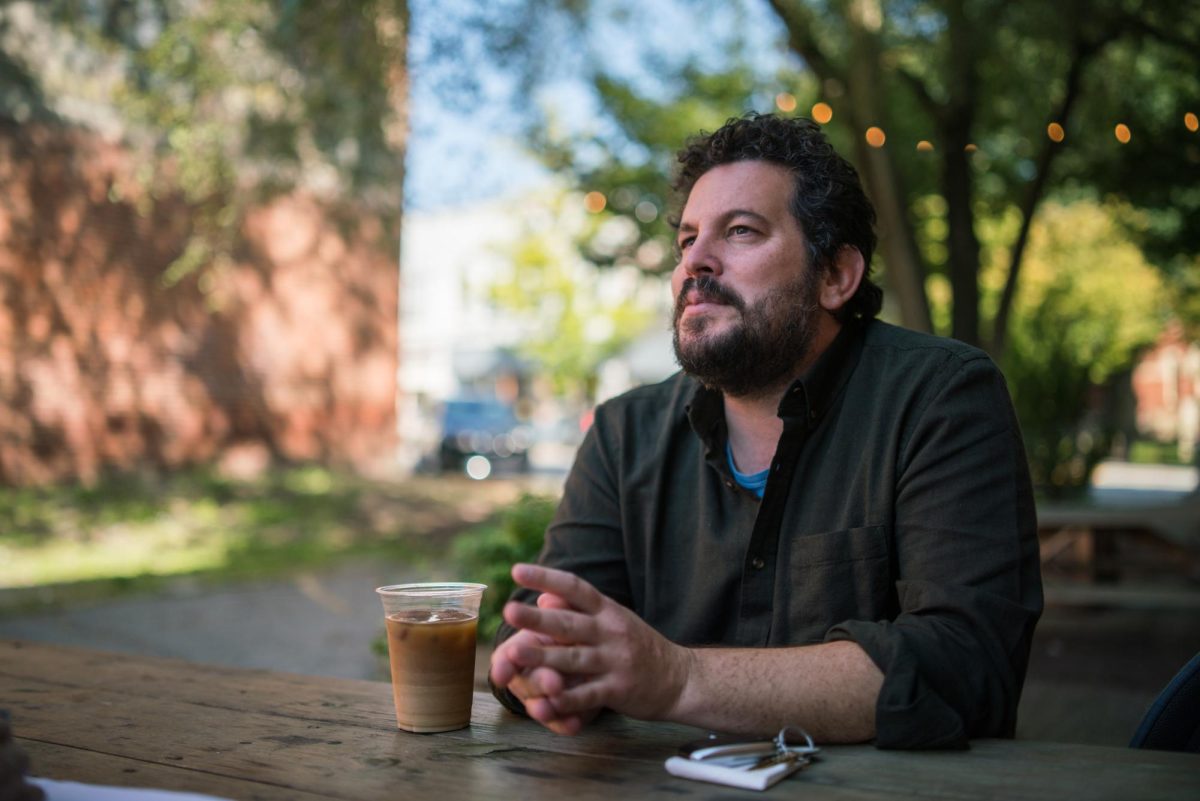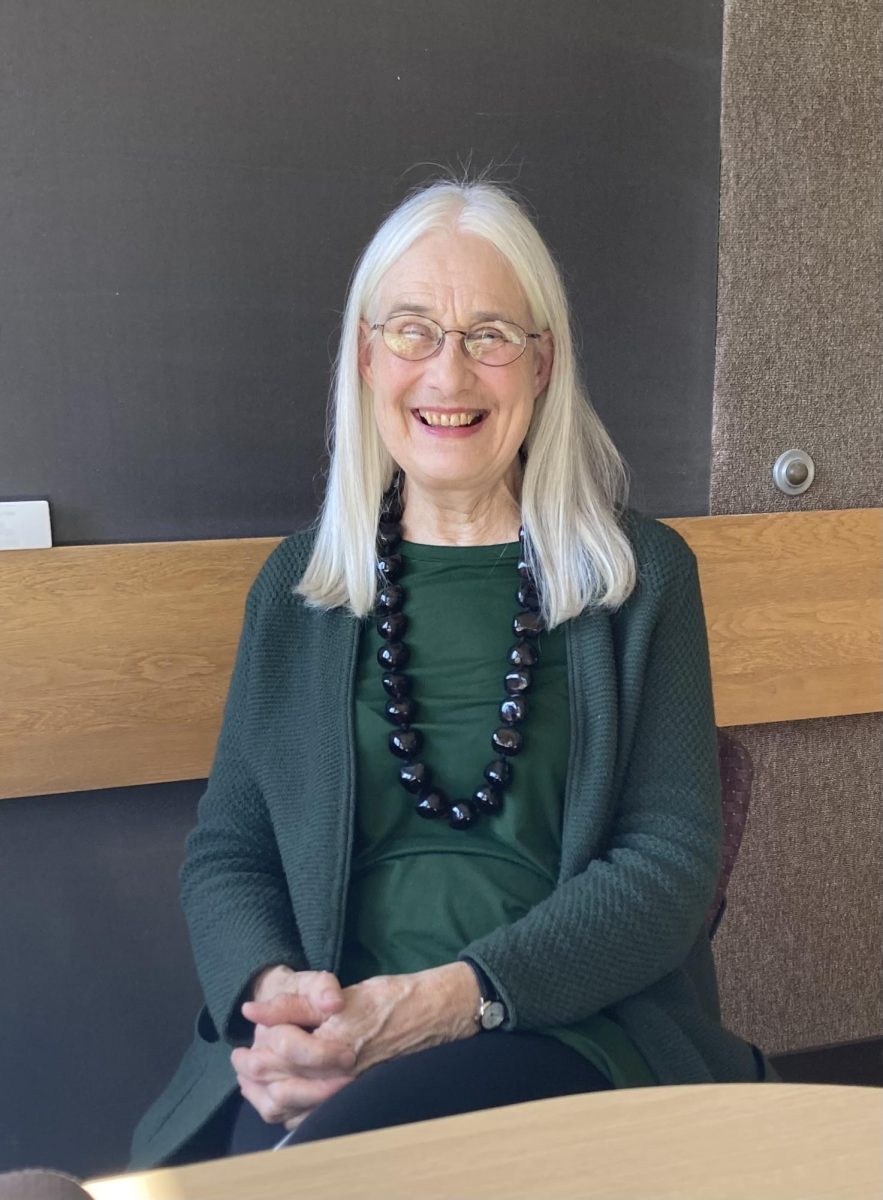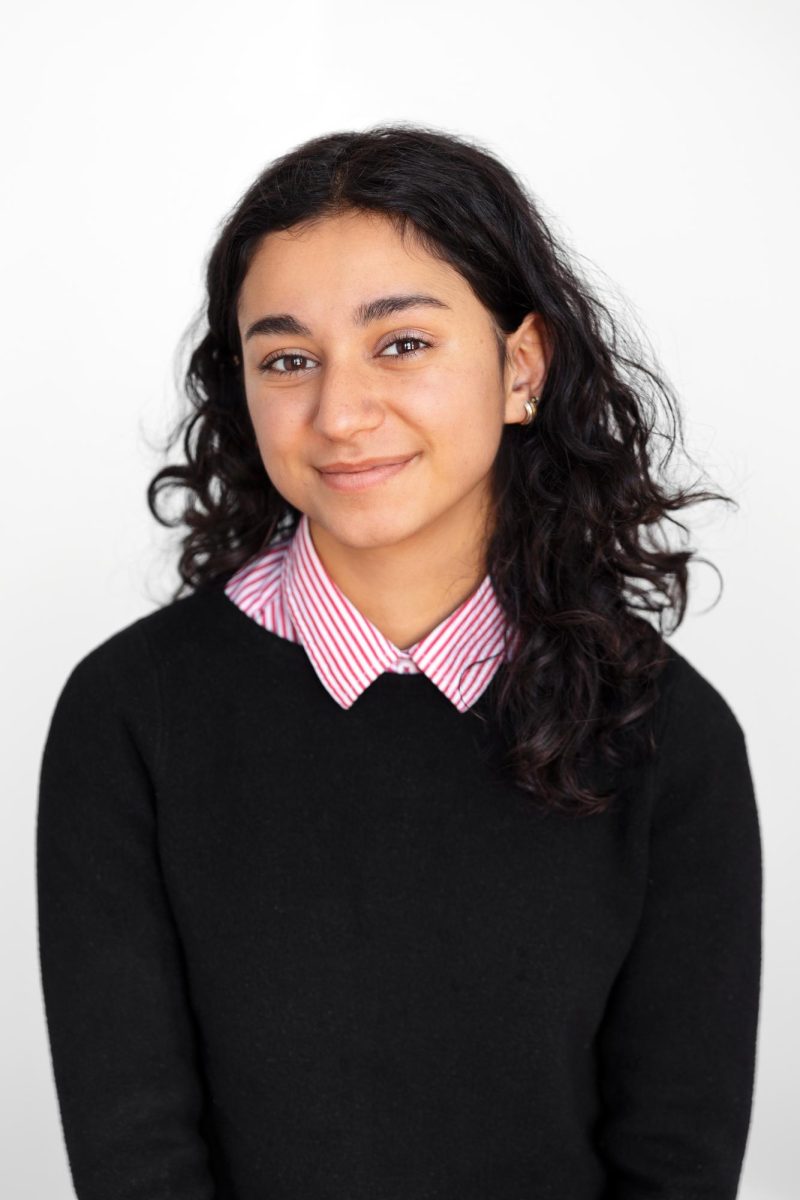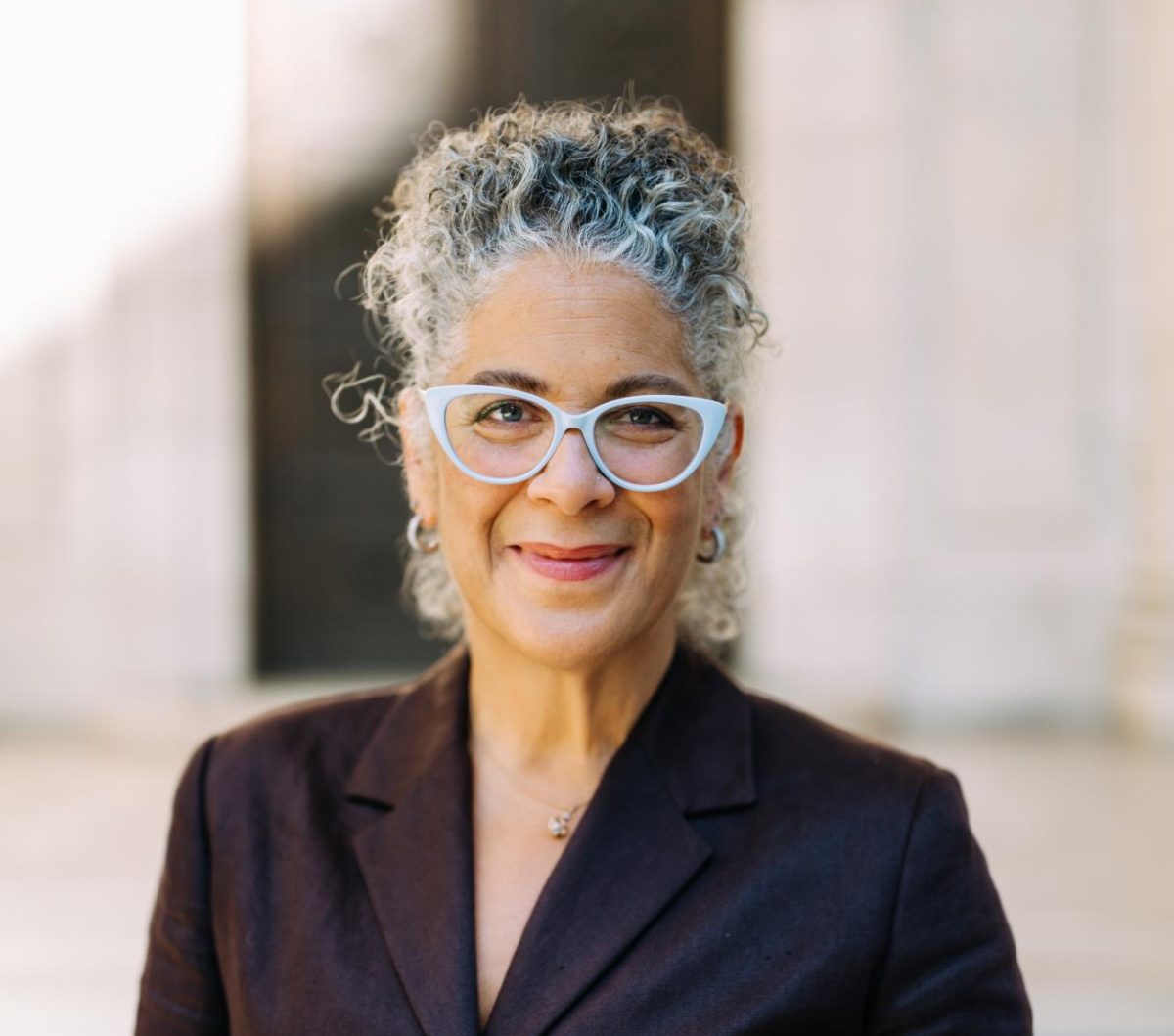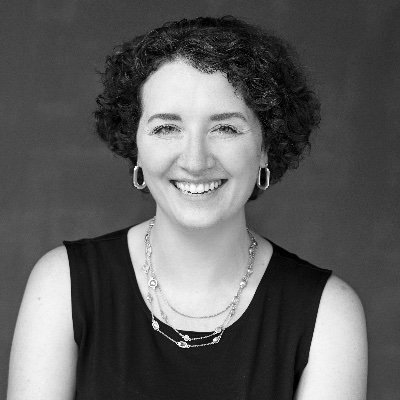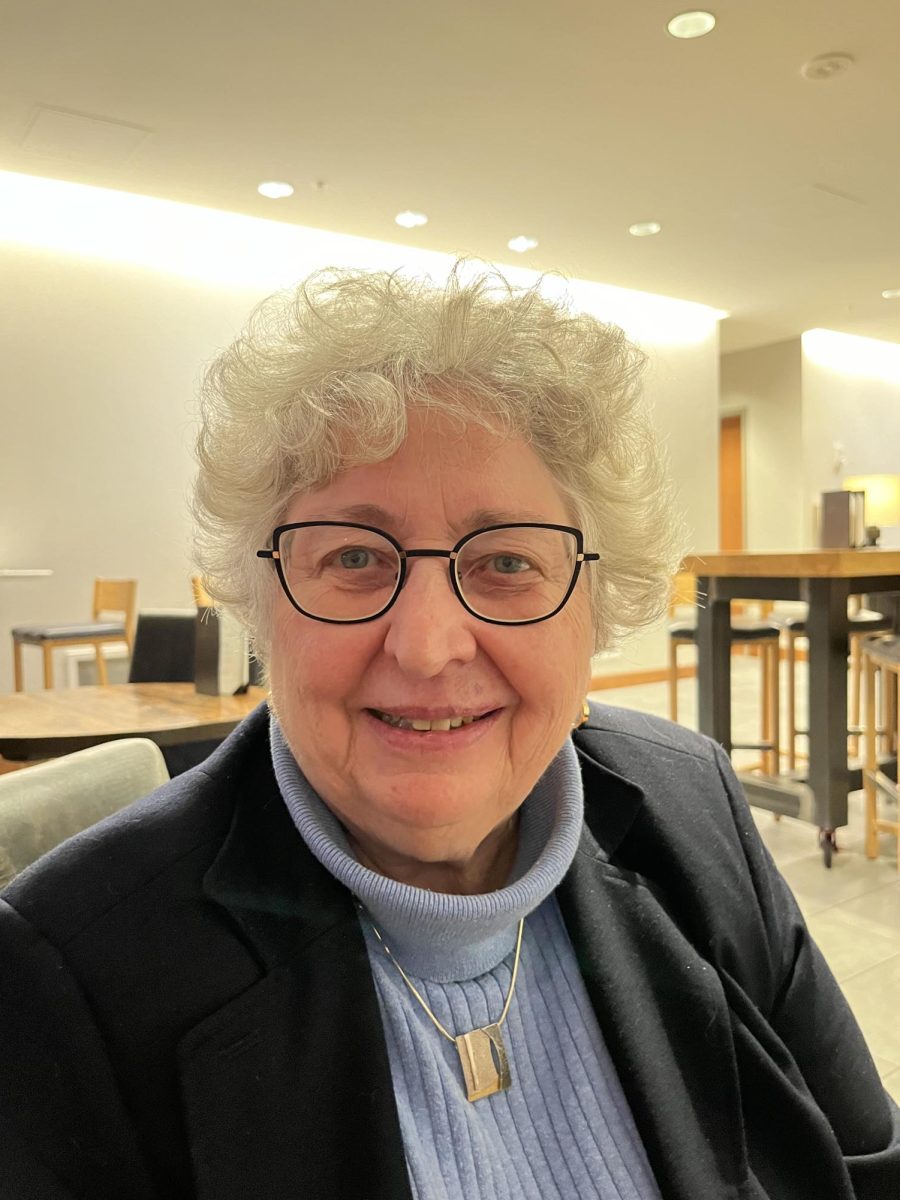Visiting Assistant Professor David Gutherz, OC ’09, studied post-fascist Italy at the University of Chicago and worked on the NPR podcast Invisibilia before returning to Oberlin to teach in the Writing and Communication department. He is currently co-teaching a StudiOC course with Professor of Computer Music and Digital Arts and TIMARA Chair Tom Lopez on writing and editing for auditory storytelling.
This interview has been edited for length and clarity.
What kind of student were you when you were at Oberlin?
I was a combination of intense and intensely distractible. I was the sort of student who was very passionate about certain classes and subjects and got really into it and probably talked too much in class, but I was also very easily thrown off course.
So, I was really into the classes, really loved the liberal arts atmosphere, and really loved all the learning I got outside of class, but maybe made a little bit too much of the array that was at my disposal.
What were some of the courses that you really enjoyed, and what were some of the distractions that were most gripping?
I was a Religion major, and I was very into a sequence taught by the current Dean of the College of Arts and Sciences David Kamitsuka on modern religious thought in the West. I took several courses with him on that subject, and what I liked about them was that there was a mix of the philosophical and the practical that really drew my attention.
And that was true also of political theory courses. I took a lot of political theory courses with former Politics Chair Harlan Wilson, who’s no longer here. One minute we’d be talking about something super abstract and seemingly arcane, and the next minute it’d be like, “Well, so should we change our voting system?” and I really love that connection.
Unofficially, I spent a lot of time listening to weird stuff in the Conservatory. Fairchild Chapel had a running stream of TIMARA composers, and other students who were more on the sort of “out there” side of things, who would often perform there.
I came to school with no knowledge of music, music composition, sound composition, or any of that stuff. So, to encounter a lot of people who thought very deeply and very strangely about sound, and performances with people sticking candles in weird orifices and all sorts of stuff that was really just out there — the performance culture at the time at Oberlin was about pushing you out of your comfort zone in a lot of different kinds of ways — I found that to be thrilling, and I do think it kind of changed the course of my life in some ways.
I don’t think I’d be teaching this radio class if I hadn’t had those experiences. One of the reasons I’m so excited to be working with Tom Lopez in the TIMARA department is if I hadn’t watched so many TIMARA department performances that I didn’t understand and didn’t know how to respond to, and then have people who were patient enough to tell me that I was stupid and say what I should have been listening for, then I never would have gotten into radio, because I really got into it as a listener first.
After Oberlin, your dissertation at the University of Chicago explored post-fascist Italy. I’m interested in what made you move from working as a historian to working on Invisibilia.
The dissertation was about stumbling onto things that I just thought were strange and fascinating and I got a little obsessed with, and it was as much about meeting people from the past who I really fell in love with as it was about pursuing some divine questions.
It was also about hearing echoes, many of them unpleasant echoes, between the period that I was studying — fascist and post-fascist Italy — and the period that I was living through and the ways that people were thinking about fascism, or about populism, or about politics in the present. Those echoes really reinforced my sense that I was going in a good direction, but I also knew that, as a historian, I had a responsibility to take a certain distance from that presentist orientation.
One of my research topics was about the role of what people call public intellectuals in the cultural reconstruction after fascism. It’s people who are not just academics or scholars writing for other scholars, but people who are doing behind-the-scenes work of editing journals, creating radio programs, curating art exhibitions, or other things that are really trying to engage the public in a variety of ways.
At a certain point, I just thought, well, if I really want to understand some of this stuff, I need to get some practice working in the public sphere. Invisibilia in particular struck me as a program that was doing a lot of really interesting work in that domain of public intellectuals. Social science and scientific concepts that were typically reserved for a sort of elite were being refigured and reimagined, not only in a popularizing way, but actually in a creative way that brought something new to them. I would have the experience of having read a book, then hear it talked about on Invisibilia and have something totally new revealed to me. That was very exciting, and I wanted to see what it was like to do that.
I’m curious how you brought this idea of being a public intellectual to your work with Invisibilia.
A lot of the work that I found most fulfilling at Invisibilia was not work that you would see my byline on. Work that was collaborative, behind the scenes, in a supporting role for people who were working through ideas and working through problems, was the most fulfilling. For the piece that we listened to today, “The Weatherman,” working with artists and storytellers to refine their work views, I discovered that I had some skills as a consultant in those places. I say that because I think that people hear the term “public intellectual” and they think that it means someone who wants to stand up on a soapbox, tell people what is important, and be an activist. There’s certainly space for that, but I have always felt that it’s almost the opposite. It’s about being willing to take yourself out of your ego and put yourself in a place where you can make collaborative work with people who have a whole range of skills that you don’t have. You can be a small piece of something that can touch a lot more people than the thing that you could have done by knowing how to do everything from A to Z. I think a lot of scholarship in the humanities is focused on, “You have to know a topic completely, write a great article about it, then write a book that’s built on a bunch of those articles.” For me, letting go of some of that vision of authority and being in more of a supporting, creative position was a way to reach a different kind of public.


